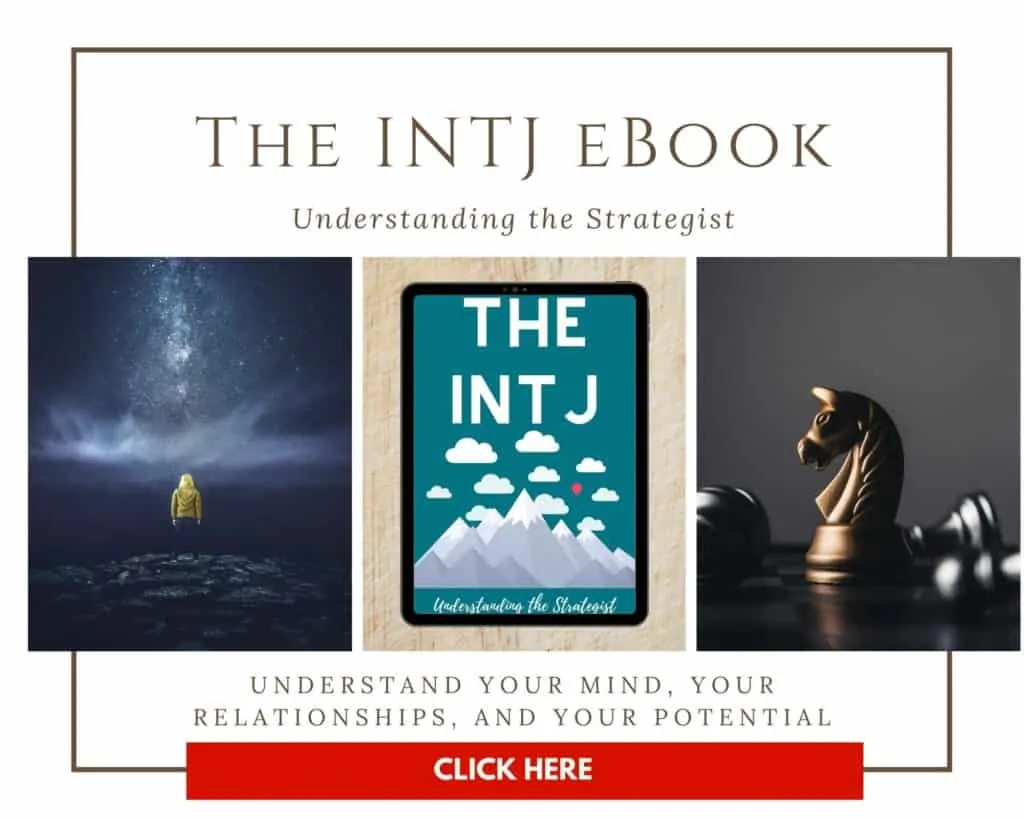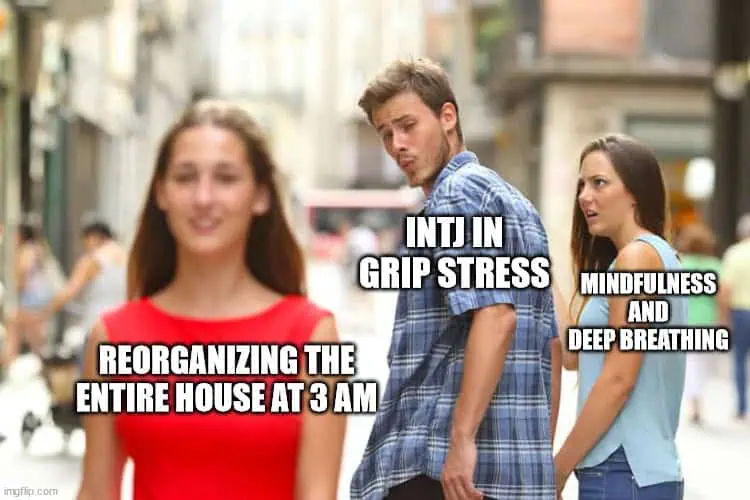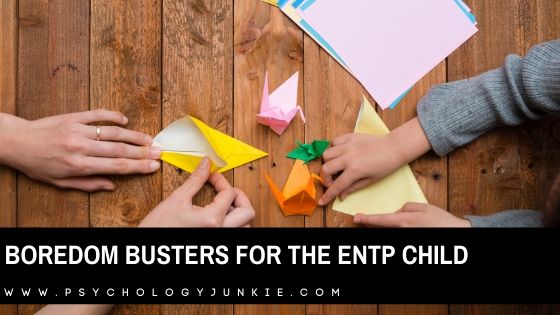12 Stress-Busting Techniques for INTJs
INTJs are often called the masterminds of the Myers-Briggs® world—strategic thinkers who can spot patterns, anticipate outcomes, and solve problems most of us didn’t even know we had. But as much as INTJs are lauded for their logic and foresight, they’re not immune to stress. In fact, when stress hits, it can throw even the sharpest INTJ into a frustrating tailspin.
Whether it’s the chronic hum of everyday demands or the full-blown chaos of “grip” stress, understanding how to manage and alleviate stress is crucial for INTJs to thrive. Let’s dive into the types of stress INTJs face and 12 practical ways to conquer it.

Not sure what your personality type is? Take our new personality questionnaire here. Or you can take the official MBTI® here.
Table of contents
- INTJs and Everyday Stress
- INTJs and “Grip” Stress
- How INTJs Act and Feel When They are “In the Grip” of Extraverted Sensing
- A Re-Cap Of What Causes An INTJ Stress:
- 12 Ways INTJs Can Get Relief From Stress
- 1 – Get Some Alone Time
- 2 – Reduce Sensory Stimulation
- 3 – After some time alone, find a good friend who can simply listen
- 4 – Just Say “No” To Non-Essential Responsibilities
- 5 – Sleep
- 6 – Get Outdoors
- 7 – Exercise Alone
- 8 – Try to Solve One Minor Problem
- 9 – Watch a Movie
- 10 – Read a Book
- 11 – Play Music
- 12 – Reduce Sugar and Caffeine Use
Estimated reading time: 11 minutes
INTJs and Everyday Stress
Under normal everyday stress, the INTJ will try to solve the stress or problem by using either their intuitive or thinking sides. This will cause the INTJ to become more “INTJ-like.” They will try to get more time alone to process a strategy or realize a pathway out of the stress using Introverted Intuition. They may apply hard logic to the problem and try to solve it that way. Many times they become more reclusive, obsessed with finding “the one” logical answer. If they can solve the problem at hand using Intuition or Thinking than they may be able to minimize their stress and find relief.
But what happens when stress is ongoing? What happens when intuition and thinking CAN’T fix everything?
That’s when INTJs enter what typologists call “The Grip.”
INTJs and “Grip” Stress
When stress becomes chronic or overwhelming, INTJs can experience a “grip” reaction—a phenomenon where their inferior function, Extraverted Sensing (Se), takes the wheel. This is uncharted territory for INTJs, and the result can feel disorienting.
Suddenly, the big-picture strategist becomes impulsive and fixated on the immediate sensory world. An INTJ in the grip might binge-watch an entire season of a show they don’t even like, order way too much takeout, or spend hours obsessively organizing their bookshelf. While these behaviors might offer temporary distraction, they leave INTJs feeling even more out of sorts.
Common Triggers for INTJ Grip Stress:
- Overloaded schedules with no time to think or reflect
- Excessive noise or sensory stimulation (open-plan offices, anyone?)
- Disruptions to carefully crafted plans
- Feeling stuck in mundane, detail-heavy tasks
- Working with those they see as lazy, ignorant, or incompetent
- Being in an environment that doesn’t appreciate their skills or vision
- Having to focus entirely on the here-and-now
- Not being able to envision the future or see a clear direction in their lives
I’m an INTJ myself, so let me share a personal example. This year (2025) has been a whirlwind of change for me. Now, change itself isn’t usually overwhelming for INTJs—it’s the lack of control or clarity that really gets under our skin. And this year? There’s been plenty of that.
Here are just a few examples: We might be moving to another state—or we might not. My daughter could be heading to college out of state—or she might stay closer to home. My husband is job-hunting but hasn’t had much luck so far. On top of that, my business has lost about three-quarters of its traffic (thank you, AI), and the future of my work feels incredibly uncertain.
It’s a lot of unknowns, and everything hinges on factors I can’t control. As an INTJ, I love being the chessmaster—the one strategically moving pieces to create the perfect plan. But right now, I can’t move a lot of the pieces until I get answers to these looming questions. This uncertainty has thrown me into grip stress more times than I’d like to admit, and it’s a struggle that many INTJs can relate to.
How INTJs Act and Feel When They are “In the Grip” of Extraverted Sensing
When INTJs are having a grip reaction, they will seem very unlike their normal selves. Extraverted Sensing takes over which flips their normally long-range focus on its head. Instead of a controlled, careful planning, they become impulsive, reactive, and more focused on sensory indulgence. In fact, when I was getting my MBTI® certification and being trained on this very subject, the practitioner called INTJs “The Indulgers.”
Grip stress is extremely confusing for anyone, but it can be especially disorienting to the very reserved, controlled INTJs. Chances are, they will feel lost and out of control, unable to access their normal intuitive or thinking abilities. Normally big-picture thinkers with a good sense of direction, they will suddenly lose their focus and ability to see from their normal global perspective. They may make more factual mistakes and errors. Their temper might flare up more rapidly, with more outbursts than they’d usually give into. Some INTJs struggle with over-eating, over-exercising, obsessive cleaning, heavy drinking, or buying lots of useless items. They give into their sensory function in an unhealthy way, trying to find some kind of indulgence that will make their stress dissipate.
12 Ways INTJs Can Get Relief From Stress
1 – Get Some Alone Time
For INTJs, solitude isn’t just a preference; it’s a necessity. Alone time allows them to recalibrate, dive deep into their intuitive insights, and regain control of their mental state. Even 15 minutes of quiet reflection can work wonders.
Pro tip: Find a space where interruptions are impossible—whether it’s your bedroom, a park bench, or your car in the driveway.
2 – Reduce Sensory Stimulation
INTJs are already juggling a thousand mental tabs; sensory overload adds chaos to the mix. Close the curtains, dim the lights, or retreat to a calm, quiet spot. Think sensory deprivation tank vibes, minus the tank.
3 – After some time alone, find a good friend who can simply listen
INTJs usually want a lot of time alone when they are stressed out. However, after some time, they can be helped by having someone who will listen to their problems without trying to offer advice. Advice may be useful if they’re experiencing minor, everyday stress, but if the INTJ is experiencing “grip” stress, advice will only make them more irritated. Sometimes, talking through the problem out loud can help the INTJ to put together and realize a logical solution to their problem.
4 – Just Say “No” To Non-Essential Responsibilities
INTJs are notorious for biting off more than they can chew. Learn to triage your to-do list and eliminate unnecessary tasks, especially ones that drain your energy without meaningful payoff.
5 – Sleep
Yes, you’ve got a million goals to achieve, but burning the candle at both ends doesn’t help anyone. A well-rested INTJ is a strategic powerhouse. A sleep-deprived INTJ? Let’s not go there.
6 – Get Outdoors
There’s something uniquely grounding about nature. INTJs often find that a solitary walk in the woods or by a lake helps them recalibrate. Let your senses absorb the environment—a breeze on your face, the crunch of leaves, the scent of pine—and feel the stress melt away.
7 – Exercise Alone
While group workouts may appeal to some, INTJs often prefer solitary exercise. Whether it’s running, yoga, or weightlifting, the combination of movement and solitude can help restore mental clarity and balance.
8 – Try to Solve One Minor Problem
INTJs are often very single-minded in their focus. When they are highly stressed or having a grip reaction, they may feel completely unable to focus or have direction. If they can distract themselves from the main problem, their most major focus, and switch their focus to a smaller problem, they can often find relief. Sometimes this involves doing some light proofreading, alphabetizing some books on a shelf, or even just organizing the refrigerator! The process of fixing a minor problem can help them to access their Extraverted Thinking in a way that is low-pressure. This can help them to lose their obsessive focus on fixing the big problem, and help them to regain their composure.
9 – Watch a Movie
Few things can transport an INTJ like a well-written book. Fiction helps you reconnect with your imagination, while non-fiction lets you channel your energy into learning something new.
10 – Read a Book
Reading a book can help the INTJ to access their rich, imaginative Intuition. It can also help them to access their tertiary Feeling function, to find a pathway to equilibrium and mental clarity.
11 – Play Music
Whether it’s strumming a guitar or zoning out to your favorite playlist, music can soothe overstimulated senses and connect you with your emotions in a way that feels effortless.
12 – Reduce Sugar and Caffeine Use
When stress spikes, it’s tempting to reach for stimulants. But INTJs often find that too much sugar or caffeine only exacerbates sensory overwhelm. Swap the coffee for herbal tea and notice how much calmer you feel.
Have Any Thoughts?
Let us know what you think in the comments! Your thoughts and insights might help another INTJ reading this article!
Find out more about your personality type in our eBooks, Discovering You: Unlocking the Power of Personality Type, The INFJ – Understanding the Mystic, The INFP – Understanding the Dreamer, and The INTJ – Understanding the Strategist. You can also connect with me via Facebook, Instagram, or Twitter!
Not sure what your personality type is? Let me help!


More INTJ Posts Below!















I am under “grip” stress right now and your article really helped. Thank you.
You have no idea how much this has help me !!! Thank you!!!!
I’m so glad!! Thank you for reading! 🙂
Thank you. Needed validation i have taken right actions and approach. I thought I was loosing it completely.
Wow this felt so relatable. In fact I read this piece as a way to get out of the grip. Thanks a lot ❤.
Thanks, I think I’m in the grip stage, having something to do with my career and financial status. This comes as a welcome reminder on how to hold it all together. Nice site overall too, many thanks again, you have no idea how this has and will help.
I’m so glad if this helps!! I’m sorry you are dealing with stress, and I hope you will feel better in time. Thanks for the kind words about my site also!
i’ve been in a grip place having to go to tribunal for my benefits and i’ve put on 3 stone with addictive sugar to try and relieve my stress. the article made total sense and has given me tips on how to rejuvenate myself quicker than the 2-3 days on my own.
So super helpful! I have been wired out lately from feeling helpless in solving a problem, the other minor ones seemed to gang up on me with the major one and I was ready to take off screaming into the night. I do need to cut out on my coffee binge-a-thon. heh! Thanks for the tips.
– Being in unfamiliar environments
– Having their plans disrupted
– Having to focus entirely on the here-and-now
Four words: Delayed aircraft when transferring!
One of the more frequently happening events that stress the hell out of me. To the point where I start getting jittery in the days up to the trip. Because it is hard to make viable contingency plans that does not involve needing to be in the now if it happens.
Very difficult to deal with as most of the tools in the box cannot be used in a foreign airport.
As to general stress relief, binging tv shows is my favorite go-to tool.
Alternatives are shopping electronics and eating chips by the bags, neither being very sustainable.
Binge watching is fairly safe.
If it is really bad, binge until falling asleep on the couch, as I cannot fall asleep normally in bed when in grip stress.
Thank you for pulling this together. Even though in a healthier state this may be self-evident, when throw into a funk this helps stand back up on two feet. – INTJ Type 5
Thank you! I’m really glad that you found this helpful 🙂
I agree with everything except No.12. With having A.D.D., the opposite is a fix. When it’s not over done, sugar can calm the mind. Too much sugar intake will cause the body to balance the blood sugar content and negate the effectiveness sugar provides. The goal is to keep blood glucose levels up without the body producing insulin. To fly under the radar.
perfect thank you
As an INTJ I agree with this, however when I am forever sleeping, and watching TV to distract myself from the problems it becomes destructive. How do I get myself out of the work/family – stress, avoidance through sleep and TV cycle?
As an INTJ I agree with all of the above. I have been in highly stressful environments, taken a walk and boom solved the problem. I do wonder that when you get stuck in a stress/avoidance cycle it can be destructive to yourself, work and family. How would you reconcile that situation?
I very much agree on alone time and a walk. I had a hard time phrasing it to people, but when I get stressed out and then get annoyed, I turn into a person I don’t like. I don’t explode or anything but I’ll calmly say really biting things or things I know are too blunt for most people. And I think it all comes down to needing space. Like even subconsciously, I know I need it and if I don’t actively provide it for myself, my words will do it for me and I’ll say something that will back people away to give me that space. I’m aware of it now and I fight against it when it happens but I haven’t always won that fight. I’ve struggled with this since I was a teen and it very very very rarely comes out now, but when I feel myself stressing out in this particular way/loop, I tell people that I appreciate the concern or offers of company but I need alone time. Alone time and a walk. Knowing what you need during intense stress or anger is so important. Not only do you risk hurting people when you can’t fix/pause/help it, you can also lose credibility. It just ruins your environment.
Thank you so much for this information, Susan.
I, probably like a lot of introverted intuitives, tried to fit myself into a society built for extroverted sensors. That is until I came across your information as well as David Kiersey’s book, “Please Understand Me”.
Now I can be more forgiving of myself.